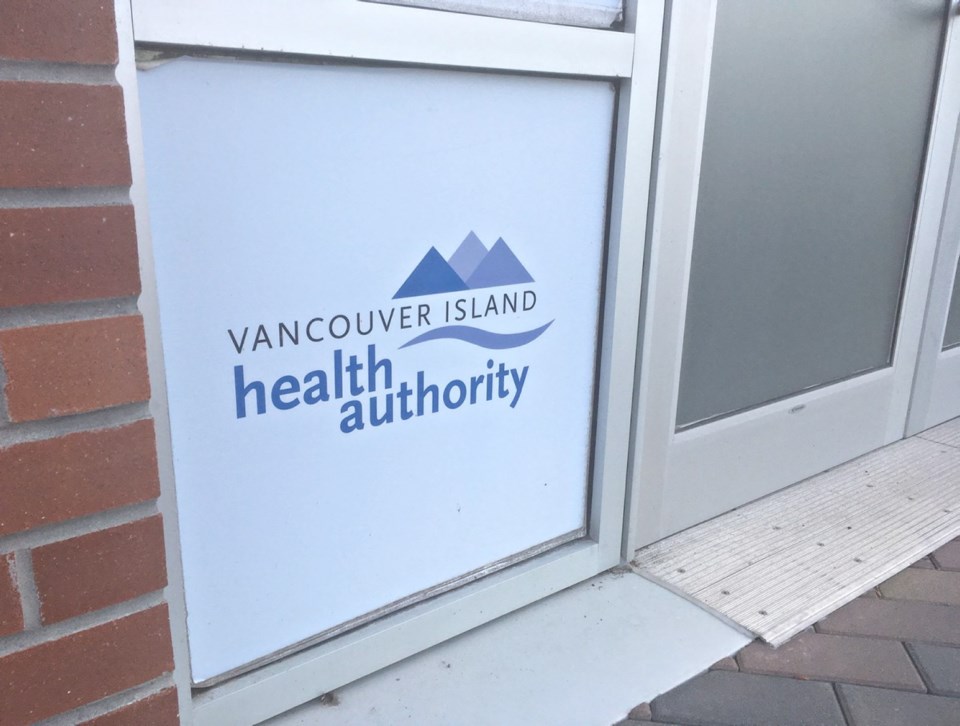Despite public-health orders restricting visits to long-term care homes, a small number of able-bodied residents are walking out of the homes to buy cigarettes, take a stroll in the city or meet with friends, creating a risk to others in the facilities.
Island Health says it has dealt with 10 of the 25 residents who have been identified as regularly leaving the care homes, which is not advised, but is legal.
“It’s a small number but we wish it was zero,” said Mark Blandford, executive director for primary care and seniors health at Island Health. “And from a fairness point of view, it’s not fair for families who have had to deal with the restrictions.”
Blandford said the residents are being monitored, and three have been permanently relocated to other supportive housing in the community.
“Clearly, their care needs aren’t at the level where they need to be in a long-term-care facility,” Blandford said.
On March 17, provincial health officer Dr. Bonnie Henry ordered the 584 public and private long-term care and assisted-living facilities in B.C. — including 146 on Vancouver Island — to block entry for all but essential visitors.
That order was eased on June 28 to allow one designated scheduled visitor, and on Thursday, B.C. Health Minister Adrian Dix said 318 seniors homes now have approved safety plans to allow for those visits.
While the focus has been on the plight of long-term care residents and families unable to see one another for four months, Island Health has also been working on mitigation plans for the approximately 25 people known to regularly leave public facilities.
There is no order preventing a person who is physically and mentally able to manage on their own from leaving a long-term care facility, although a health facility could restrict someone who would potentially harm themselves or others.
“We can advise and support residents to make good choices, but at the end of the day, they are free to make poor choices,” said Blandford. “Unless there is a mental-health order in place or a medical health officer order in place to restrict people leaving facilities, we can’t stop them.”
Island Health’s first approach was to determine why some residents were heading out. For some, the solution was as simple as “we’ll get your smokes,” said Blandford, although other cases proved more challenging, resulting in the three residents being moved.
B.C. seniors advocate Isobel Mackenzie has noted that with the right community support, about 15 per cent of people in long-term care don’t need to be there.
Island Health says there are several cases of people whose needs are too great to live alone or in assisted living who end up in long-term care. The health authority is working on how to take care of them with supportive housing.
Blandford said amid the pandemic, health officials have had to balance the risk these people pose to themselves if allowed to live on their own, and the risk they pose to other people in the facility when they go out. “It makes it very hard for us and it is hard to justify, particularly when families haven’t seen their loved ones for a long period of time.”
The health authority worked with B.C. Housing in Campbell River to move one resident into a motel for two weeks. Island Health paid the initial motel bill until the resident could organize their finances with social services to pay for a subsidized rental suite. “He’s now going to be moving into a B.C. Housing [unit] this week with a subsidized rent,” said Blandford.
The health authority says there are about 15 people — about 10 in Victoria and five more elsewhere on the Island — who are still regularly leaving their care homes. Five cases are expected to be resolved in a couple of weeks, Blandford said, leaving about 10 people in Island Health-run facilities.
“The goal is to keep them where they are if we can solve the underlying issue,” said Blandford. “Moving them out is a last resort — hence it’s a small number.”
For those who go out, facilities must try to mitigate the risk when they return, ensuring they follow hygiene procedures and keeping them separated from other residents, Blandford said.
“But we would much rather than they didn’t leave.”
There are two long-term care facilities with COVID-19 outbreaks in the province, and neither is on Vancouver Island. The Island has not had a COVID-19 outbreak in a long-term care or assisted-living residence.
Of the 189 deaths related to COVID-19, the majority have been long-term care residents. Of 136 cases that tested positive to date in Island Health, 127 have recovered, four are active and five have died.
Despite its record of no infections in long-term care, Island Health continues to have simulation drills every few weeks — “everything we did when COVID was at its height” — to test its ability to respond to a major outbreak, said Blandford.
“We’re not relaxing.”



